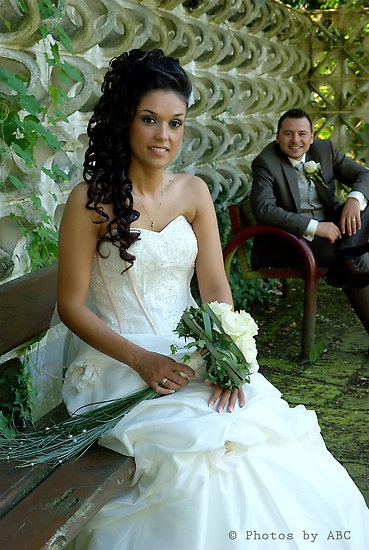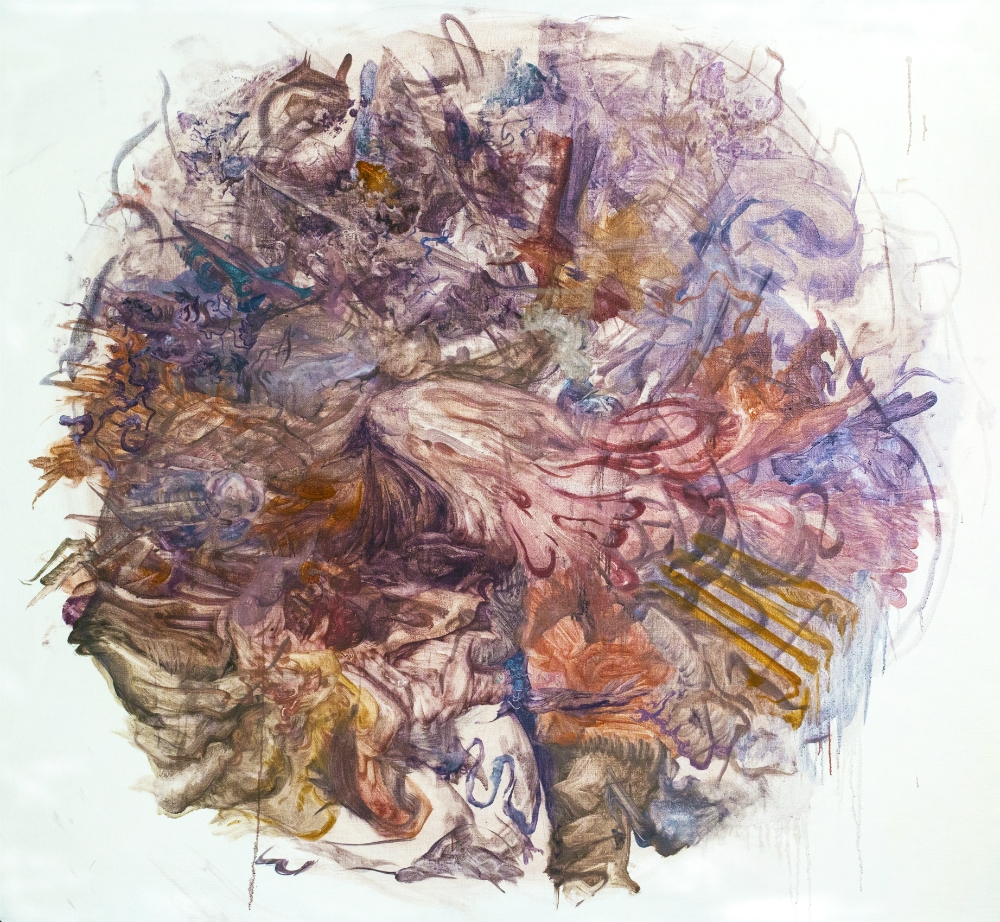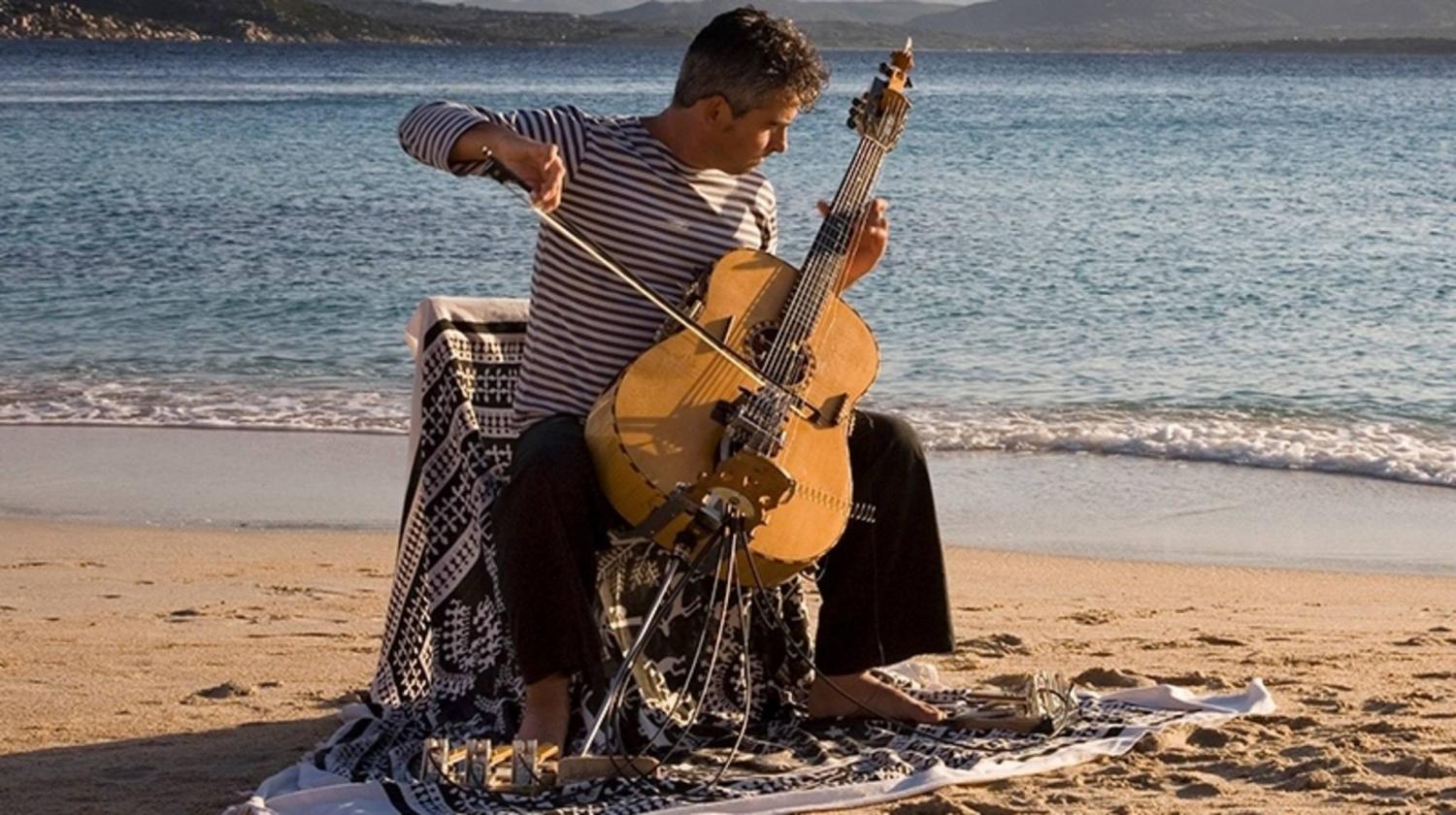
Sardinian Sorcerer Set to Cast Spell Over Winter Jazz Festival
Photos courtesy of paoloangeli.com and TD Ottawa Jazz Festival
The instrument was once a guitar of wood and wire. It rang out beautifully over the Island of Sardinia, the music drifting off above the crashing waves that kissed the shore before the notes vanished somewhere over the Mediterranean.
The instrument was once a guitar but now it awaits transformation in the hands of a Sardinian sorcerer named Paolo Angeli. His magic is music and, growing up, the spells that transfixed were all around him. They were on the breezes that blew in from the village carnivals, the concerts in the square he heard as a boy and in the songs of his first mentor, a father who sang soothing melodies and strummed the keys that would open the doors to another world.
The instrument was once a guitar but before the sorcerer would change it into something unlike anything ever seen there were days embracing the music. In Italy he would become part of a eclectic ensemble of 14 musicians who looked to move beyond the barriers of any musical genres and, together, through improvisation, create new sounds. Then came his post-rock days in a band called Mistress. Then came the opera Pacifica…the Serbian dances.
The instrument was once a guitar but a meeting with a wizard would transform both the musician and his instrument. Angeli would meet Giovanni Scanu, a cherished near century old relic from the Island whose name was not known by many oceans away but his classic Sardinian canto a chitarra style became the melodies of legend in his homeland. For ten years the sorcerer would learn the wizard’s secrets.
There, on the well cultivated borderline of avant-garrde and popular tradition, came the conception that would change the instrument that was once a guitar into a hybrid orchestra of hammers, pedals and propellors. It would become a baritone. It would become a violoncello. It would become drums. You can almost envision the lightning bolt that cracked life into this strange musical creature as its creator looked on, eyes wild and wide, shouting: “It’s alive! It’s alive!”
And now they are both coming to the TD Ottawa Winter Jazz Festival. The performance, “Talea”, like the man and his instrument, will be enchanting. This music is said to carry thousands of stolen clues found in the birth of his unique instrument and with the pages of the diary of a journey where the sense of belonging merges with a search for diversity.
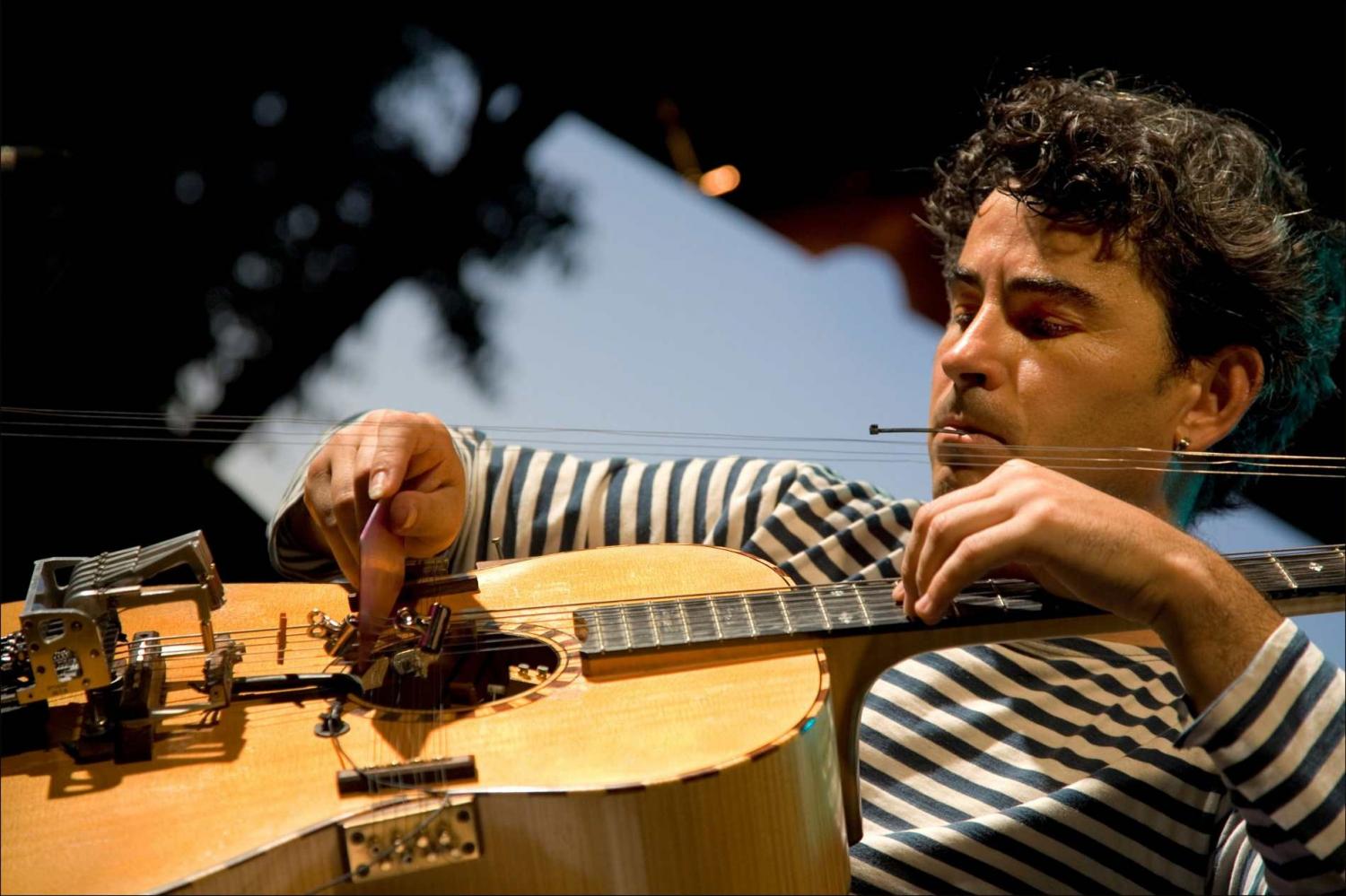
We spent a few moments with the sorcerer before his Thursday, February 8 show at La Nouvelle Scène. This is what he told us.
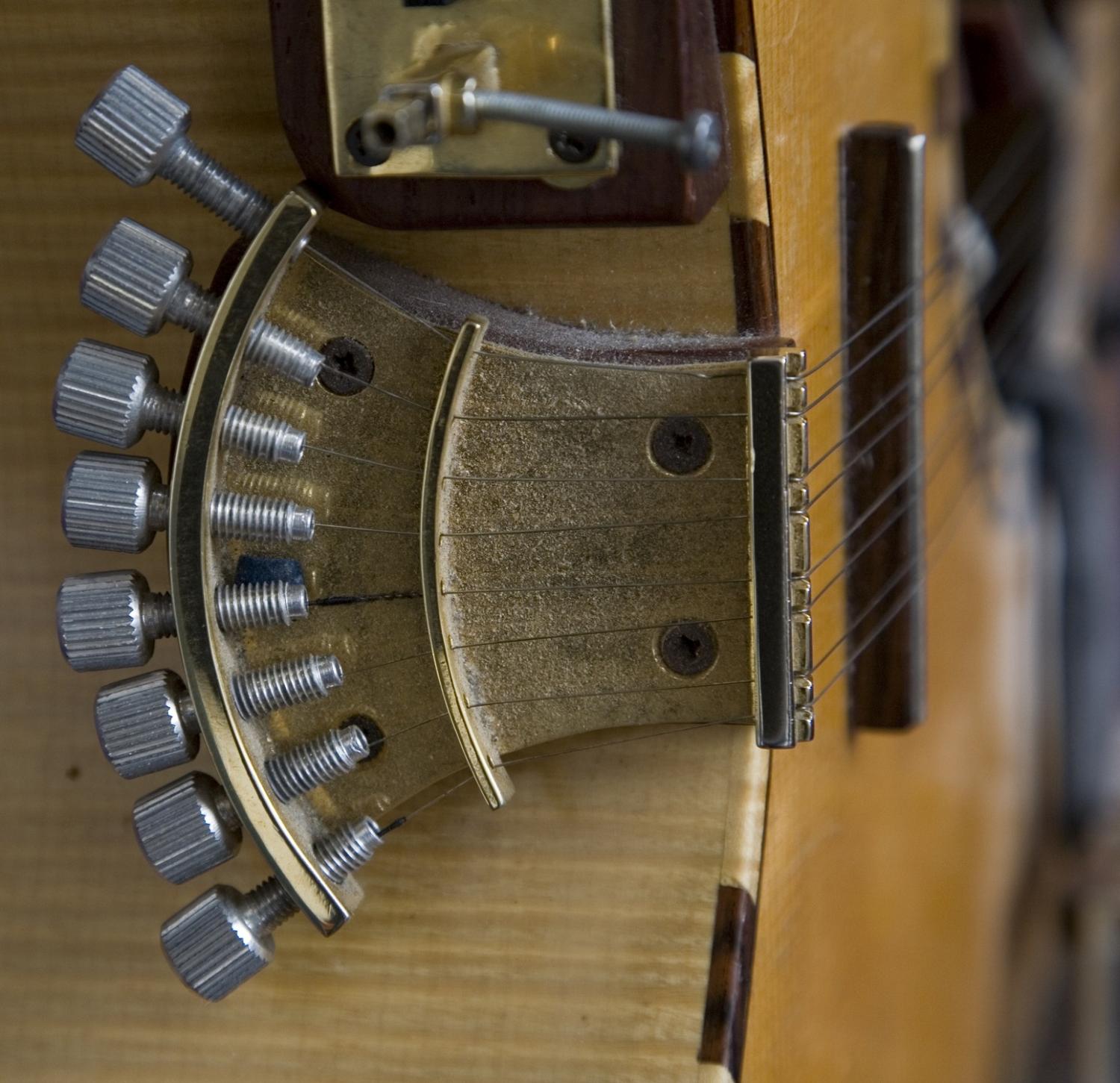 Ottawa Life: What can you remember about holding a guitar for the first time?
Ottawa Life: What can you remember about holding a guitar for the first time?
Paolo Angeli: I was 9 and we ordered a keyboard but it didn’t arrive. After a couple of weeks my father, a brilliant guitarist and singer, told me: "Try to play guitar! It’s very simple as with three chords you could play lot of songs!” So I never decided to play guitar, it happen casually and probably this could be the reason I’m fascinated to play so many instruments and I modified my guitar like a small orchestra.
Your music is very worldly but you grew up on the Island of Sardinia, in the small village of Palau. How would you describe the music there and how it influenced you?
Sardinia is an incredible Island with a unique background. It is in the center of Mediterranean Sea and we had lot of colonization. But at the same time our traditional music has some characters you couldn’t found in other cultures in Italy. For example, we have Canto a Tenore, a vocal quartet with throat singing, or launeddas, an instrument played in circular breathing. Than the church music and the guitar related to monodic songs. In Palau I grew up with rock music as it’s a village with a touristic economy. It been amazing to discover traditional repertories from old musicians. I digitalized the most important Sardinian collection in the world Archivio Mario Cervo and I wrote a book dedicate to the guitar music in north of Sardinia.
What was your inspiration to create the Sardinian guitar?
In 1993 I met Giovanni Scanu, at that time the older guitarist in Sardinia (he was born in 1907). I spent ten years with him learning all the secrets of traditional music. At the same time I met Fred Frith, the most important innovator of electric guitar and follower of the John Cage philosophy about prepared instruments. I think my guitar is the answer to so many extreme questions. I couldn’t decide which direction to follow. So I created a hybrid, a new instrument, that would let me play avant-garde music or Sardinian repertory. Jon Rose with his incredible prepared violins has been a big influence for me too.
Can you tell me what went into the unique design and how you constructed such an interesting instrument?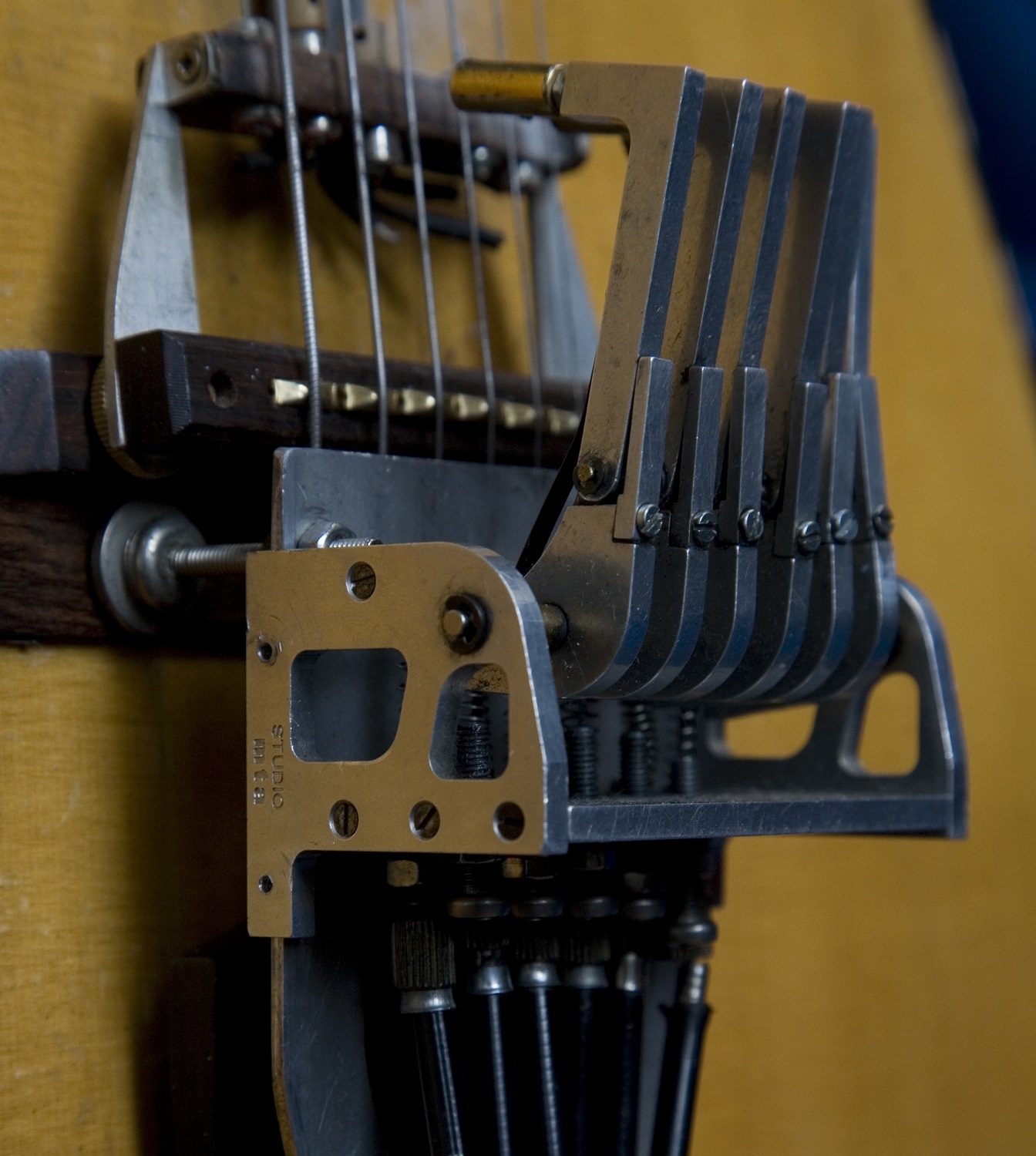
It been a work in progress and still now I modify the guitar with new prototypes. It took about eight years to arrive at the design of the instrument I am currently using. I was lucky to meet Francesco Concas. He was a lute maker and was free to help me develop all the ideas I had in mind without any taboos. I built the first prototype between 1995-96 and on 2003 we made two twin guitars in collaboration with Stanzani Luthiery. One was used in orchestrion by Pat Metheny. Currently I’m thinking about a new model.
Obviously, this instrument didn't exist before so it's not like there were any texts or classes to take to learn how to play it. How did you learn to master your creation?
As it was a work in progress, I had time to digest all the new elements incorporated on the guitar. But it was very difficult to develop a new way to play it. Always I had to think what part I need to lose to have space for a new thing. It’s necessary to invent a new way to play. For example, bowing mean to use the guitar as a cello; to play by foot and control the hammers mean to have independence like a drummer. Then there are the propellors for drone and a special pickup to split all strings with different pan pot.
You must need a lot of focus to ensure you have everything working in flux. What are some of the hardest things about playing this guitar?
The coordination between all the parts, from having to play a bass line with the hammer and melody with the bow not to mention all the effects on different strings without stopping the crescendo. You need to spend much more time here then you do playing a regular guitar. It is like playing two or three different instruments at the same time.
With so many different pieces that can be composed for it, how do you approach writing for the instrument?
Always it is different. Basically I start playing like a guitarist and than I do the orchestration of the ideas, using bow, pedals etc.
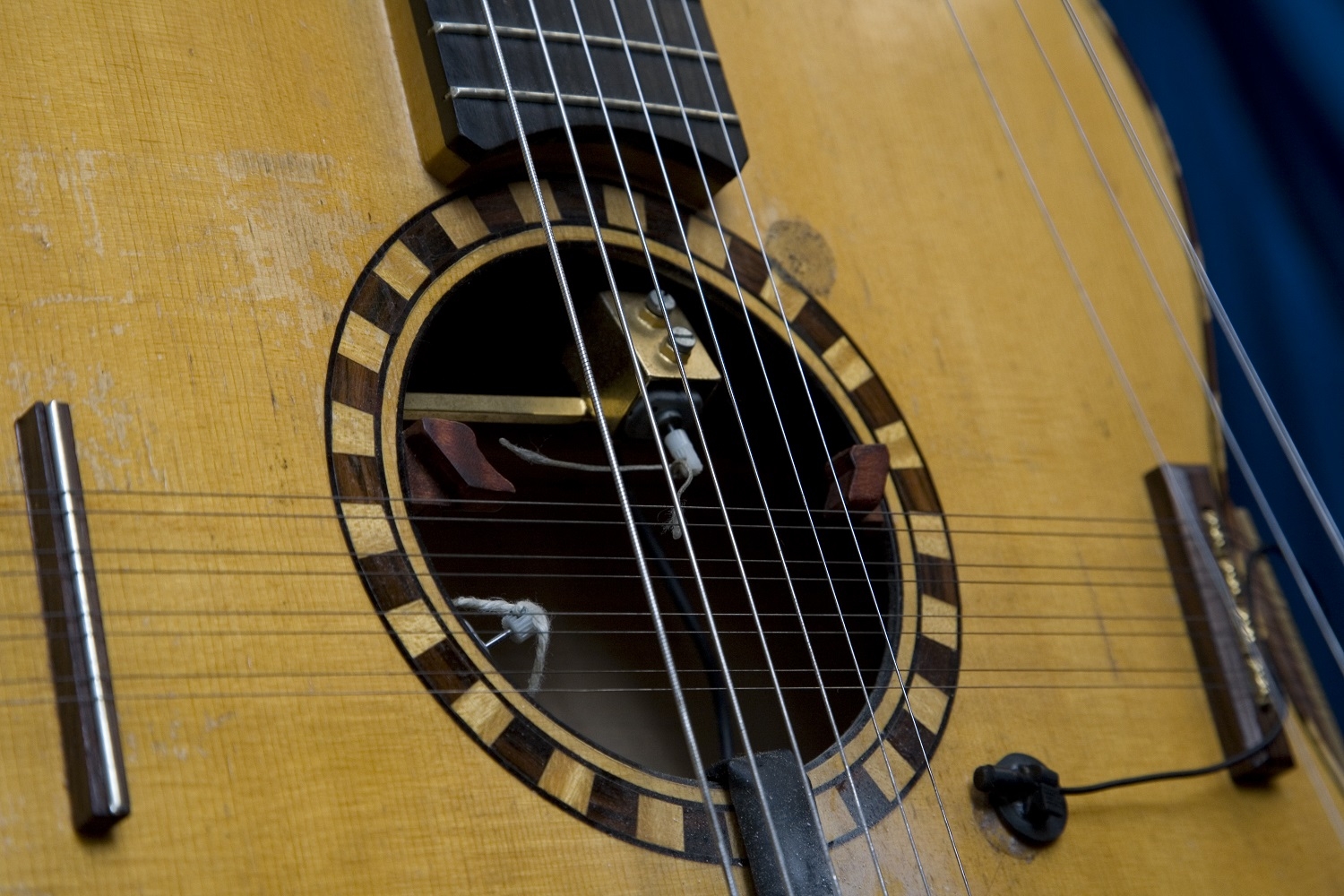 The piece "Talea" is very dear to you. Can you tell me how you developed this program?
The piece "Talea" is very dear to you. Can you tell me how you developed this program?
I try to never repeat the same concert and I decide on stage in real time what music to play. I improvise and, at the same time, the music is based on more than four hours of repertoire, so that no performance would be the same. In 2015-16 I had a world tour and I recorded more than 60 concerts. Then I selected the music for "Talea", the double brings together 20 years of different musical ideas. On the Canadian tour I’ll introduce several new compositions too.
You’ve mentioned that you are very improvisational in your work. This program gives you a lot of options to change things up. Why are you so comfortable playing a more free form show, then, say something that is set to one general playlist?
I played in Neoneli, in the center of Sardinina, there was only the old people of the village; in Addis Abeba, for an audience of African people without connection with avant-garde; inside of a mine or at the sunset in a desert island; near a mosque in Tunis, improvising at the same time while the muezzin would be calling for the prayer. If you play every night the same playlist there is not any interaction with latitudes, cultures, people and different contexts. I like to improvise as it’s the best way to be in touch with your feelings in the moment you are on stage.
I imagine the reactions to you playing this instrument run from gasps of disbelief to sheer awe. What is it like seeing the faces of the audience as you play from your spot on stage?
For me it’s more important the feeling of the energy then to see the faces. Some times it could be an to communicate with people quite afraid about the complexity. Sometimes you could play very experimental and people would follow you closing their eyes. Some times you could see people yawing near some people crying. Each human sensibility is different and every evening you take the risk risk to do a special show for the audience. It’s a big privilege to play around the world and spend time with the people after the show discussing the guitar. I would love to spend my life like an archeologist discovering all the secrets of music.


